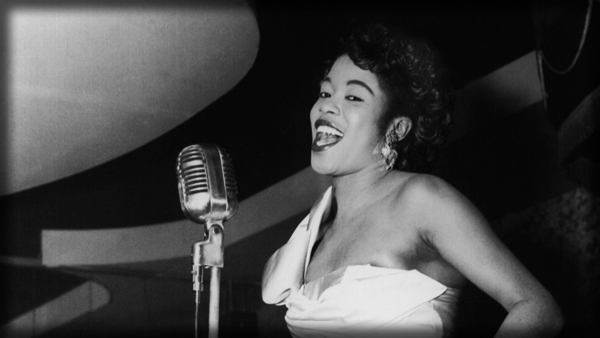
Vocal Jazz on Saturday 13 April at 18:00 CET looks at the career of Sarah Vaughan.
Sarah Vaughan was no ordinary American girl. As a teenager, she performed as a singer and pianist at the Piccadilly Club in her hometown of Newark, New Jersey. At the age of eighteen she took part in an amateur contest at the Apollo Theater in New York. She sang Body and Soul – not the easiest song – and she won. That earned her an engagement at the Apollo Theater and a job with the orchestra of Earl Hines.
“Sassy” could do everything with her voice. She had a range of three octaves, a rich palette of timbres, flexibility and precision, and she used these qualities with a perfect feeling for the expressive possibilities of the text. In the emerging bebop idiom – with its associated harmonic complexities – she moved like a fish in water, also when she was improvising.
The programme features a total of 15 tracks – 5 of them are discussed below, the full playlist can be found in the Guide.
- I’ll Wait and Pray. In 1944 she made her recording debut with Billy Eckstine’s band. That orchestra featured a host of bebop greats who were an inspiration for her, including Charlie Parker, Dizzy Gillespie, Art Blakey, Dexter Gordon and Lucky Thompson.
- Night in Tunisia, this well-known composition by Dizzy Gillespie with an “oriental” atmosphere quickly acquired the status of a standard. Gillespie made some fundamental changes for the vocal version on Sarah Vaughan & Her All-Stars (1944). The syncopated intro of the bass is omitted, the tempo is slowed down considerably and the title is changed to Interlude. Gillespie comes to the fore in the modest arrangement with a characteristic solo of eight bars.
- The album Sarah Vaughan (with Clifford Brown) from 1955 was her personal favourite. The record was also highly rated by critics. You’re Not the Kind is one of the lesser-known compositions. The pianist is Jimmy Jones, who accompanied Vaughan for about eight years. Note his melodic solo work behind the vocals. He gives the instrumental solos – including a weak flute solo by Herbie Mann – a less expressive accompaniment.
- Later in her career, Vaughan also explored Brazilian music. I Love Brazil is from 1978. The vocals are less jazzy and she is accompanied by a large orchestra, with pianist Antônio Carlos Jobim.
- The standard I didn’t Know What Time It Was – with countless covers – is on the album Crazy and Mixed Up from 1982. The would turn out to be her last abum that featured a small band: piano, guitar, bass and drums.
- Brazilian Romance is from 1987 and was produced by Sérgio Mendes, This is Vaughan’s final album. Quite smooth, with lots of background vocals and strings. Vaughan’s voice is beautifully sonorous in Obsession, a track that features a beautiful flute solo by Hubert Laws.
Vocal Jazz – a programme by Ineke Heijliger








